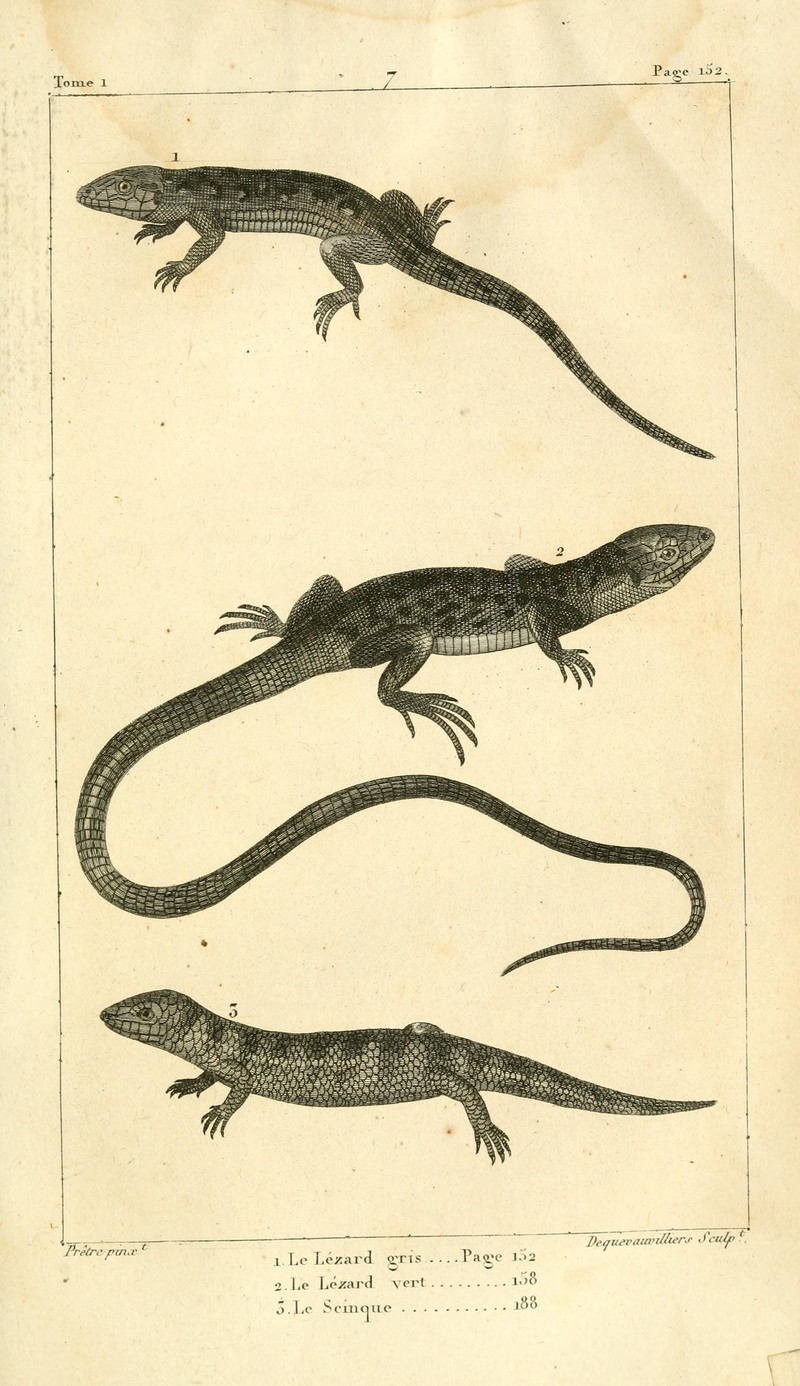|
| Query: Green lizard | Result: 44th of 148 | |
Sand lizard (Lacerta agilis), Ocellated lizard (Timon lepidus), Common sandfish (Scincus scincus)
| Subject: | Sand lizard (Lacerta agilis), Ocellated lizard (Timon lepidus), Common sandfish (Scincus scincus)
| | Poster: | Wiki Photos (---@---.---)
| |

| Resolution: 1847x3200
File Size: 1003596 Bytes
Upload Date: 2023:05:05 15:52:41
|
English:
1. The Sand lizard (Lacerta agilis)
2. The Ocellated lizard (Timon lepidus)
3. The Common sandfish (Scincus scincus)
Français :
1. Le Lézard gris (Lacerta agilis)
2. Le Lézard vert (Timon lepidus)
3. Le Scinque (Scincus scincus)
Nederlands:
1. De Zandhagedis (Lacerta agilis)
2. De Parelhagedis (Timon lepidus)
3. De Apothekersskink (Scincus scincus)
Date 1819
Source https://www.biodiversitylibrary.org/page/28124640
Author La Cépède
Full title Histoire naturelle des quadrupèdes-ovipares / par M. le comte de Lacepède ; suite et complément des Oeuvres de Buffon.
Source: https://commons.wikimedia.org/wiki/File%3AHistoire_naturelle_des_quadrup%FF%FFdes-ovipares_%28Pl._7%29_%287976561763%29.jpg
1. The Sand lizard (Lacerta agilis)
The sand lizard (Lacerta agilis) is a lacertid lizard distributed across most of Europe from France and across the continent to Lake Baikal in Russia. The sand lizard is a sexually dimorphic legged lizard. In northwest Europe, both sexes are characterised by lateral and dorsal strips of ocellated (eye-shaped) markings, dark patches with pale centres. Colouration varies across their European and Russian range. Males have finer markings than females, and their flanks turn bright green during the spring mating season, fading again in the late summer.
2. The Ocellated lizard (Timon lepidus)
The ocellated lizard, eyed lizard, jeweled lacerta or jewelled lizard (Timon lepidus) is a species of lizard in the family Lacertidae (wall lizards). Timon lepidus is one of the largest members of its family. The species is endemic to southwestern Europe. The ocellated lizard gains its common name from the bright blue, eye-like ocelli on the sides of its body.
3. The Common sandfish (Scincus scincus)
Scincus scincus, also commonly known as the sandfish skink, common sandfish or common skink, is a species of skink notable for its burrowing or swimming behaviour in sand. It is native to the Sahara Desert and the Arabian Peninsula. The common skink has developed a peculiar surprise way of dealing with the desert heat: it can dive into loose, soft sand. Its winding movements produce vibrations in the sand, with a consistent frequency of 3 Hz. It does this to prevent overheating (as it is cold-blooded) and whenever it feels threatened. |
^o^
Animal Pictures Archive for smart phones
^o^
|
|